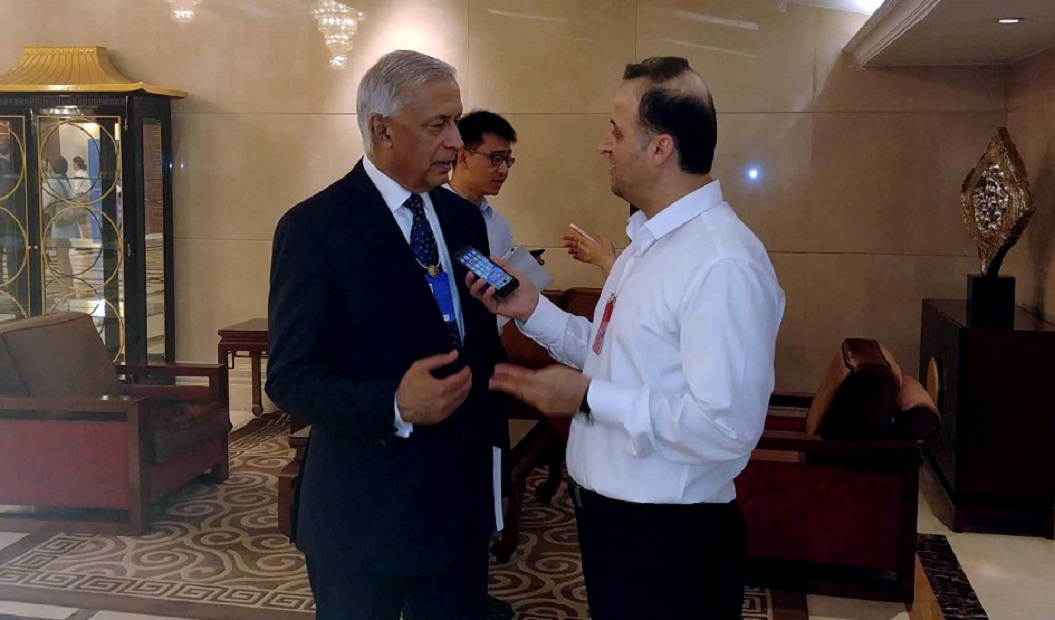
The two countries should make use of their enormous capabilities to develop relations, Shaukat Aziz told the Islamic Republic News Agency (IRNA) in an exclusive interview held on the sidelines of the World Peace Forum in China.
During the interview, Aziz stressed the need to exploit the joint border potentials in order to supplement each other's economy and have stronger trade exchange.
He further said his country sees Iran as a respectable and trustworthy nation.
The Pakistani politician said the two should not let trivial issues put an obstacle to further bilateral cooperation.
Pakistan, as Aziz said, is willing to have peaceful relations with Iran in borders.
Also, Islamabad is keen on having broader cooperation with Tehran in various fields particularly in political and economic areas, he added.
Turning to nuclear questions, Aziz said the Iran Deal formally known as the Joint Comprehensive Plan of Action (JCPOA) is a clear and transparent issue.
Iran has good cooperation with the International Atomic Energy Agency (IAEA) as Agency's reports confirm the issue, former Pakistani prime minister added.
Then, Aziz said that all countries including Iran can enjoy nuclear energy for the peaceful purposes.
Touching upon the Middle East issues, the Pakistani politician said Palestine is the major regional question and the Palestinians have right to be independent.
Talking of the relations among Islamic countries, Aziz said Muslim nations should get closer, preserve unity and solve disputes through peaceful dialogue.
The 7th World Peace Forum was held at the Tsinghua University in Beijing, the capital city of China, on July 14-15.
1483**1771
Follow us on Twitter @IrnaEnglish
 solhkhabar | Peace International News Agency Peace International News Agency , Peace News , International Agency News of Peace
solhkhabar | Peace International News Agency Peace International News Agency , Peace News , International Agency News of Peace